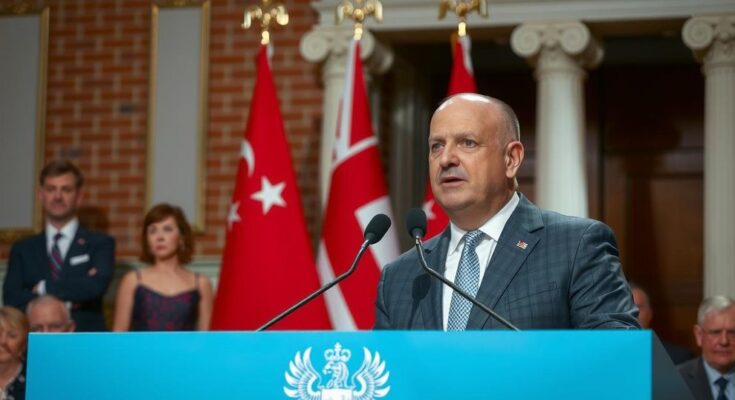Poland will hold its presidential election on May 18, with a possible runoff on June 1. Szymon Holownia, Warsaw Mayor Rafal Trzaskowski, and Karol Nawrocki of the Law and Justice party are key candidates. The election is crucial during a challenging European political landscape influenced by the war in Ukraine and changes in Poland’s domestic governance.
Poland’s parliamentary speaker has announced that the forthcoming presidential election is scheduled for May 18, with a potential runoff on June 1. This election is significant as it occurs during a challenging period for both Poland and Europe, marked by the ongoing war in Ukraine. The current President, Andrzej Duda, a member of the right-wing Law and Justice party, will complete his term in August and cannot seek re-election due to constitutional restrictions.
Szymon Holownia, the speaker of the lower house of parliament and leader of the Poland 2050 party, has declared his candidacy. Additionally, the Civic Coalition party has nominated Warsaw Mayor Rafal Trzaskowski for the presidency, while the opposition’s Law and Justice party supports Karol Nawrocki, a controversial historian. Meanwhile, Slawomir Mentzen, representing the far-right Konfederacja party, is also in the running.
The new president’s role is somewhat limited in Poland, primarily acting as the commander of the armed forces while cooperating with the government on domestic and international policies. Therefore, the presidential election will not only determine individual leadership but also influence the political dynamics within the country and towards Europe, especially in the face of current geopolitical challenges.
The announcement of Poland’s presidential election is a critical political moment, particularly as it comes amidst tensions due to the war in Ukraine. The political landscape is changing, with the ruling Civic Coalition and its affiliates seeking to consolidate power against opposition forces that have historically been divisive in their stance toward the European Union. The current president, Andrzej Duda, who is exiting after two terms, has been at odds with the coalition government, reflecting a shift in Poland’s political alignments.
In conclusion, the upcoming presidential election in Poland represents a pivotal moment for the country’s political future. With various candidates from different political factions contesting for the presidency, the outcome will shape government policy and alignments within the European framework. The election highlights the ongoing transitions in Poland’s political scene, emphasizing the impact of domestic leadership on broader geopolitical stability.
Original Source: apnews.com




